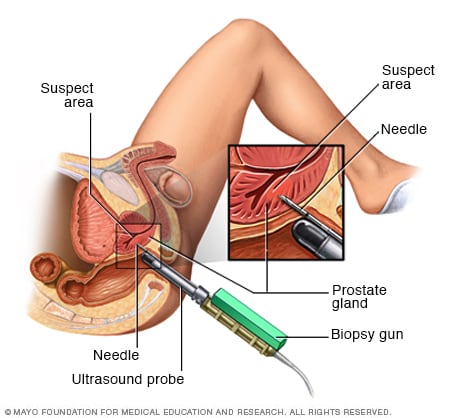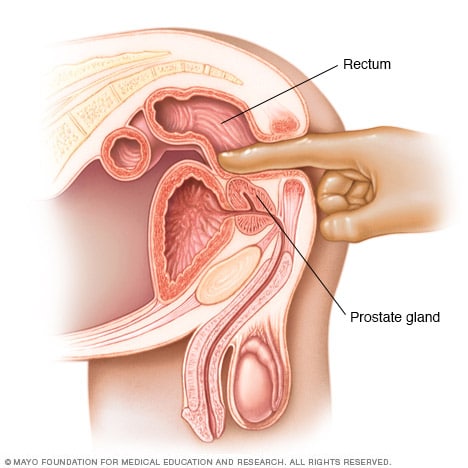Indicators on Best Prostate Cancer Doctor In Mumbai You Should Know
Indicators on Best Prostate Cancer Doctor In Mumbai You Should Know
Blog Article
Prostate Cancer Therapy: Surgical and Non-Surgical Approaches Explained
When faced with a prostate cancer cells diagnosis, the array of therapy options can appear overwhelming. This extensive review aims to drop light on the complexities of prostate cancer cells treatment, using understandings into the intricacies of each strategy to empower individuals in making informed selections regarding their wellness.
Surgical Therapy Alternatives
When taking into consideration surgical therapy choices for prostate cancer cells, individuals and health care carriers frequently evaluate the benefits and risks associated with various treatments,. One typical surgical strategy is extreme prostatectomy, which entails the removal of the whole prostate gland. This treatment is typically recommended for people with local prostate cancer and supplies the potential for a cure. Extreme prostatectomy can lead to side impacts such as urinary incontinence and erectile dysfunction.
One more medical choice is robotic-assisted laparoscopic prostatectomy, a minimally invasive treatment that makes use of a robotic system to assist the surgeon in getting rid of the prostate. This method can result in less blood loss, shorter medical facility keeps, and faster healing times compared to typical open surgical procedure. Nonetheless, it additionally brings the risk of difficulties such as infection and injury to bordering body organs.
Ultimately, the choice of medical treatment for prostate cancer relies on various variables including the phase of the cancer cells, the client's overall health, and their preferences pertaining to potential negative effects and recuperation times. Consulting with a multidisciplinary team including urologists, oncologists, and radiation oncologists can assist individuals make notified decisions regarding the most appropriate medical technique for their specific case.

Non-Surgical Therapy Choices
Thinking about alternatives to surgical treatments, non-surgical treatment alternatives for prostate cancer deal patients additional avenues for handling the disease while minimizing potential surgical threats. One non-surgical approach is Active Monitoring, where clients with low-risk prostate cancer cells are checked very closely with routine check-ups, blood examinations, and biopsies, without undertaking immediate therapy. This method intends to avoid unnecessary therapy and its connected adverse effects, such as incontinence and impotence.
An additional non-surgical option is Radiation Treatment, which makes use of high-energy rays to eliminate cancer cells (Best prostate cancer hospital in India). This treatment can be provided on the surface using an equipment (Exterior Beam Radiation) or inside via little radioactive pellets put near the growth (Brachytherapy) Radiation treatment can be made use of as a key treatment or in mix with other treatments, such as hormone treatment
Furthermore, Hormone Treatment is a non-surgical approach that intends to decrease the degrees of male hormonal agents (androgens) in the body, as these hormonal agents can sustain the development of prostate cancer cells. By blocking or decreasing androgen levels, hormone treatment can slow down cancer development and ease symptoms in sophisticated situations.
Robotic-Assisted Surgical Procedure for Prostate Cancer

One of the essential benefits of robotic-assisted surgery for prostate cancer cells is its capacity to minimize the risk of difficulties and negative effects commonly connected with open surgical procedure, such as blood loss, discomfort, infection, and expanded healing times. Patients going through robotic-assisted treatments often experience much shorter hospital remains, less postoperative pain, and much faster return to normal activities. Additionally, the minimally intrusive nature of robotic surgical procedure usually leads to smaller cuts, resulting in improved aesthetic outcomes and reduced scarring for clients. Overall, robotic-assisted surgical procedure stands for a sophisticated approach to prostate cancer treatment that combines technical improvements with surgical experience to enhance individual outcomes.
Radiation Therapy for Prostate Cancer Cells
Making use link of innovative radiation technology, radiation therapy plays a crucial function in the extensive therapy of prostate cancer. Radiation treatment makes use of high-energy radiation to ruin cancer cells and reduce tumors. It is a typical treatment choice for prostate cancer, either as a key therapy or in combination with surgery, hormonal agent therapy, or chemotherapy.
There are two main kinds of radiation treatment made use of for prostate cancer: external beam of light radiation treatment (EBRT) and brachytherapy. These seeds discharge radiation that eliminates the cancer cells over time.
Radiation treatment for prostate cancer is very efficient, with high treatment prices, particularly for localized cancer cells. It is also a useful choice for individuals who may not be appropriate prospects for surgical treatment. Like any kind of treatment, radiation treatment might have adverse effects, such as urinary issues, tiredness, and skin inflammation, yet these are typically short-lived and manageable.
Hormone Treatment for Prostate Cancer
Hormonal agent therapy is a typically used treatment method for prostate cancer administration. Prostate cancer cells is usually fueled by the male hormone testosterone. Hormone therapy, likewise called androgen deprival therapy, aims to reduce testosterone levels in the body or obstruct the click now hormone's impacts on the prostate cancer cells, therefore reducing the illness's progression. This treatment is particularly effective in advanced phases of prostate cancer, where surgical procedure or radiation therapy might not suffice.
There are different kinds of hormone treatment for prostate cancer cells, including drugs that reduced testosterone levels (such as luteinizing hormone-releasing hormone agonists and villains), or drugs that block testosterone from reaching cancer cells (like anti-androgens) Hormonal agent therapy can be used alone or in mix with other treatments like radiation therapy, depending on the stage and aggressiveness of the cancer.
While hormone treatment can properly regulate prostate cancer growth, it may feature adverse effects such as warm flashes, loss of libido, erectile dysfunction, and weakening of bones - best prostate surgeon in Mumbai. Routine tracking and discussions with medical care carriers are crucial look these up to take care of these adverse effects and make sure the treatment's effectiveness
Conclusion
To conclude, the therapy choices for prostate cancer include non-surgical and surgical approaches such as robotic-assisted surgical treatment, radiation treatment, and hormone treatment. Each technique has its own benefits and risks, and the choice of treatment relies on various elements such as the stage of cancer cells and general health and wellness of the client. It is necessary for individuals to discuss these alternatives with their medical care copyright to figure out one of the most appropriate strategy for their individual scenario.

Making use of innovative radiation technology, radiation treatment plays an essential duty in the thorough treatment of prostate cancer. It is a common therapy option for prostate cancer cells, either as a main therapy or in combination with surgery, hormone treatment, or radiation treatment.
Radiation treatment for prostate cancer cells is extremely reliable, with high treatment prices, particularly for localized cancer cells.Hormonal agent therapy is a commonly made use of therapy technique for prostate cancer management.In verdict, the therapy options for prostate cancer cells include non-surgical and surgical methods such as robotic-assisted surgical treatment, radiation treatment, and hormone treatment.
Report this page